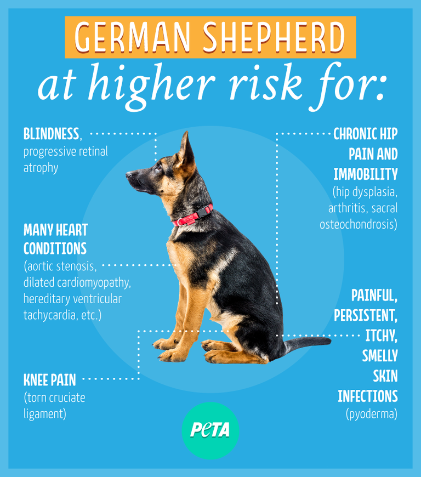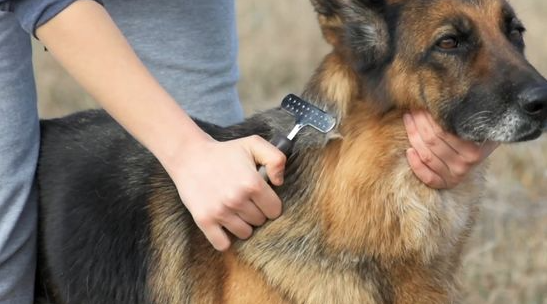Discover everything you need to know about the German Shepherd, including its history, temperament, care needs, and tips for training this intelligent breed.

The German dogs is one of the most versatile and admired dog breeds worldwide. Whether as a loyal family pet, a highly skilled service dog, or a brave police canine, German Shepherds excel in many roles. If you’re considering bringing one into your home or simply want to learn more about this incredible breed, you’re in the right place. This comprehensive guide will take you through everything you need to know about the German Shepherd, from their history and unique traits to the best ways to care for them.
History of the German Shepherd

The German Dogs breed was developed in the late 19th century in Germany. Max von Stephanitz, a German cavalry officer, is credited with shaping the breed into what it is today. He sought a working dog that combined intelligence, loyalty, and versatility, traits essential for herding sheep in Germany at the time. In 1899, von Stephanitz came across a dog named Hektor, whose traits fit his vision. He purchased Hektor, renamed him Horand von Grafrath, and established the German Shepherd Dog Club. From there, selective breeding began, focusing on these core characteristics.
Growth in Popularity
During World War I, German Dogs were used as military dogs due to their bravery and intelligence. Their performance on the battlefield, along with their adaptability to various tasks, caught the attention of other countries, particularly the United States. American soldiers brought German Dogs home, helping the breed gain popularity.
German Shepherd Physical Traits
German Shepherds are large dogs, typically weighing between 50 to 90 pounds. Their appearance is powerful and athletic, with a well-muscled body. Their coat is generally medium-length and can come in a variety of colors, including black and tan, sable, and solid black.

- Height: 22 to 26 inches at the shoulder
- Weight: 50 to 90 pounds
- Coat type: Double coat with a dense undercoat
- Color: Black and tan, sable, black, and bicolor
German Shepherd Temperament
The temperament of a German Dogs is one of the breed’s standout features. German Shepherds are highly intelligent, loyal, and protective. They form strong bonds with their family and are known to be natural guard dogs, willing to defend their loved ones without hesitation. These dogs are confident, courageous, and curious, making them great for various tasks such as police work, search and rescue, and service roles.
Trainability and Intelligence
One of the reasons German Shepherds are so beloved is their remarkable intelligence. Ranked as the third smartest dog breed, they quickly learn new commands and excel in obedience training. This makes them ideal for working roles but also a joy for owners who are willing to invest time in training.
- Key Traits: Loyal, protective, intelligent, confident, and hardworking
- Best for: Experienced dog owners, active individuals, families with older children
How to Care for a German Shepherd
Caring for a German Shepherd involves more than basic feeding and walking. These dogs require a balanced diet, regular exercise, grooming, and mental stimulation to stay healthy and happy.
Diet and Nutrition
Feeding a German Shepherd a high-quality, balanced diet is essential for their overall health. Since they are large, active dogs, they require nutrient-dense foods rich in protein to support their muscle development and energy needs.
Feeding Tips
- Protein sources: Chicken, lamb, beef, and fish
- Fat sources: Essential fatty acids for coat health
- Carbohydrates: Whole grains or grain-free options for sustained energy
- Feeding schedule: Two meals a day to avoid bloating (common in larger breeds)
You can also add supplements such as glucosamine to support joint health, as German Shepherds are prone to hip dysplasia.
Exercise and Activity Levels
German Dogs are incredibly energetic and need consistent physical activity to prevent boredom and destructive behavior. A minimum of one to two hours of exercise per day is recommended.
- Walking: Daily walks or runs
- Playtime: Games like fetch and tug-of-war
- Mental stimulation: Puzzle toys, training exercises, or dog sports like agility
Without enough physical and mental activity, German Shepherds can develop behavioral issues such as excessive barking, chewing, or digging.
Training a German Shepherd
Training is a critical aspect of raising a well-behaved German Shepherd. Due to their intelligence and eagerness to please, these dogs thrive in a structured training environment.

Early Socialization
It’s important to start training and socializing German Shepherds as early as possible. Exposing them to different people, animals, and environments will help them grow into well-adjusted adults. Puppy training classes are highly recommended.
Obedience Training
Basic obedience commands such as sit, stay, come, and heel should be introduced during the puppy stage. These dogs excel in positive reinforcement training, so using treats, toys, or praise as rewards will encourage good behavior.
- Positive reinforcement: Focus on rewarding good behavior rather than punishing bad behavior
- Consistency: Ensure the whole family is using the same commands and techniques
- Patience: German Shepherds may be quick learners, but they still require patience and consistency
Common Health Issues
Like all dog breeds, German Dogs are prone to certain health issues. Being aware of these potential problems allows you to take preventive measures and seek veterinary care when necessary.

Hip and Elbow Dysplasia
Hip dysplasia is one of the most common health problems in this breed. This condition occurs when the hip joint doesn’t develop properly, leading to arthritis or joint degeneration.
- Symptoms: Lameness, difficulty standing, or reluctance to move
- Prevention: Maintaining a healthy weight and providing joint supplements
Degenerative Myelopathy
Another issue German Shepherds may face is degenerative myelopathy, a disease that affects the spinal cord and causes gradual loss of coordination and mobility.
- Symptoms: Weakness in the hind legs, difficulty walking
- Prevention: Unfortunately, there is no cure, but physical therapy may help slow progression.
Allergies and Skin Problems
German Shepherds are also prone to skin allergies and other dermatological issues. These could be triggered by food, fleas, or environmental factors.
- Symptoms: Excessive itching, rashes, or hair loss
- Treatment: Consult your veterinarian for treatment options, including hypoallergenic diets and medicated shampoos.
German Shepherds as Working Dogs
German Dogs have earned a reputation for being highly effective working dogs. Their intelligence, strength, and loyalty make them ideal for many demanding roles.

Police and Military Work
German Shepherds are commonly used in police and military work, where they perform tasks like tracking, search and rescue, and apprehension. Their natural protective instincts and fearless demeanor make them ideal for this line of work.
Service Dogs
In addition to police work, German Shepherds excel as service dogs for individuals with disabilities. They are trained to perform tasks like guiding the visually impaired or providing emotional support.
Grooming a German Shepherd
German Shepherds have a double coat, which requires regular grooming to keep it clean and healthy. Shedding is a common issue with this breed, particularly during seasonal changes.

Grooming Tips
- Brushing: Brush your German Shepherd at least twice a week to remove loose hair and prevent matting.
- Bathing: Bathe only when necessary, as over-bathing can strip their coat of natural oils.
- Nail trimming: Trim their nails every 3-4 weeks to prevent overgrowth.
Shedding Solutions
To manage shedding, use a de-shedding tool during their heavy shedding seasons. A high-quality diet with sufficient fatty acids can also help reduce shedding.
Final Thoughts
The German Shepherd is a remarkable breed known for its intelligence, loyalty, and versatility. Whether as a family companion, a working dog, or a protector, German Shepherds will give you their all. However, they do require commitment in terms of training, exercise, and care. If you’re up for the challenge, this breed will reward you with endless love, protection, and loyalty.
Conclusion
In summary, the German dogs is an exceptional breed that thrives in homes where it can stay active and engaged. Make sure to provide your German Shepherd with the right nutrition, exercise, and training to ensure a happy, healthy life. Whether you’re adopting one as a family pet or considering a working role for your dog, the German Shepherd’s loyalty and intelligence will not disappoint.
Call to Action
Did you enjoy learning about the German Shepherd? Share your thoughts in the comments below, or explore more articles on our blog about other amazing dog breeds! Don’t forget to share this guide with fellow dog lovers.



